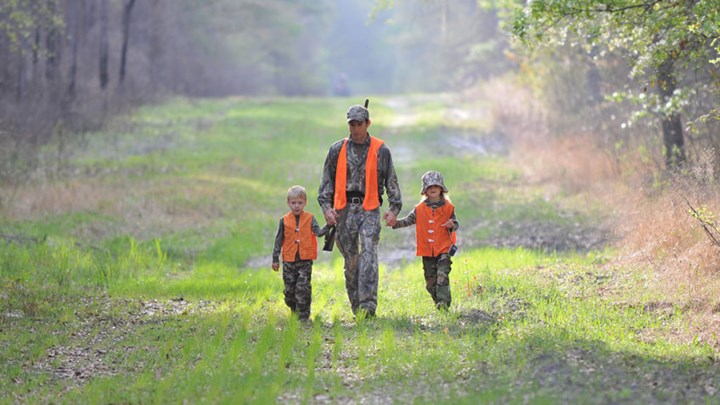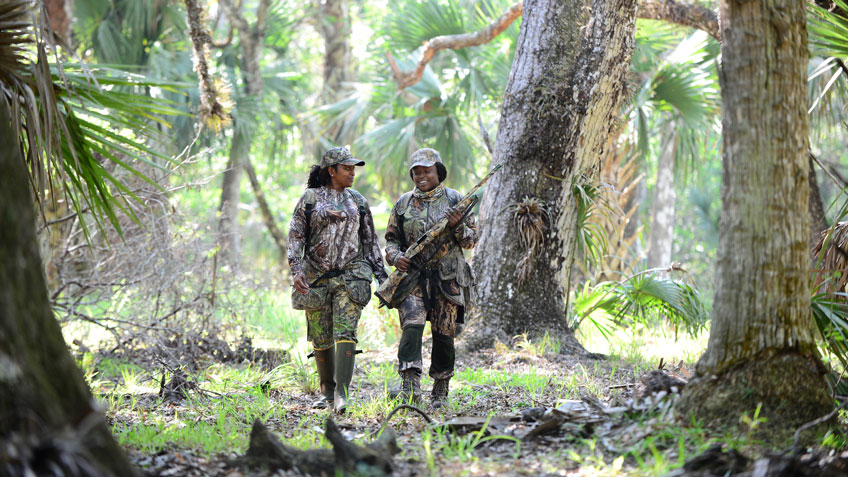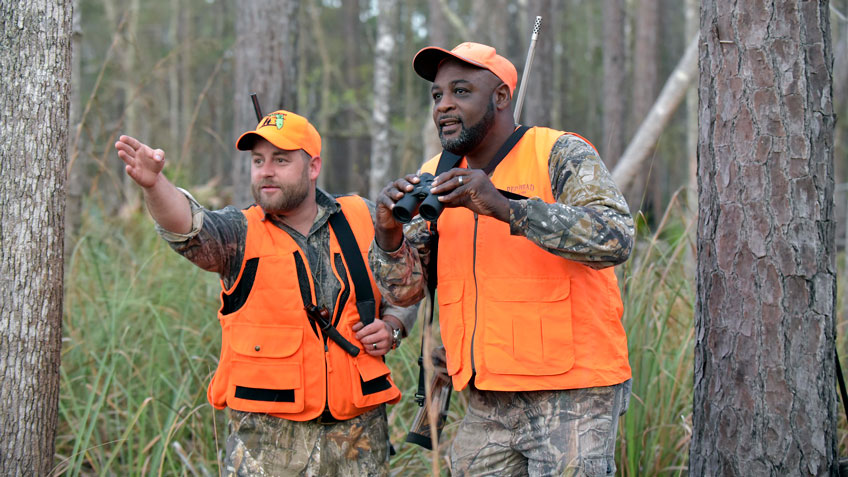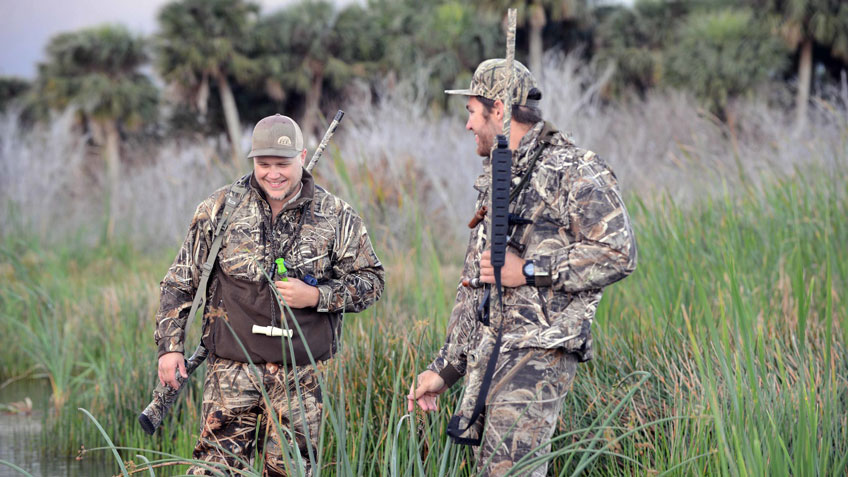
by Erin C. Healy - Thursday, November 7, 2019

Florida was recently notified by the U.S. Fish and Wildlife Service (USFWS) that its request to use the National Rifle Association’s (NRA) 100-percent-free online Hunter Education Course as an in-kind third-party donation had been accepted. This means that the Florida Fish and Wildlife Conservation Commission (FFWCC) can access up to $70,000 for wildlife conservation efforts based upon the number of Floridians who take the online course and the going rate for such a course on the open market, which ranges by state from approximately $14 to $30 per person. Funds are set aside by the Federal Aid in Wildlife Restoration Act, also known as the Pittman-Robertson (P-R) Act, to aid states in the management and restoration of wildlife. The NRA’s Institute for Legislative Action (ILA) had sought recognition and approval from The Department of the Interior (DOI) for the $3 million it spent creating the engaging and comprehensive online hunter education program, and DOI Secretary David Bernhardt was instrumental in securing USFWS approval for the high-value NRA-donor-funded course.
As this NRA Hunters’ Leadership Forum (HLF) website reported in August 2017, the NRA’s free online Hunter Education Course debuted in Florida. Today, the FFWCC web page for hunters explains the different ways Floridians can complete their hunter education and firearm proficiency requirements, one of which is by using the free NRA online course. The site then directs those interested to the NRA Hunter Education portal (NRAHE.org), developed by NRA Hunter Services.

Fittingly, the Sunshine State is now the first to reap the rewards of its partnership with NRAHE.org since the USFWS handed down a major victory for the NRA and hunters, recognizing the NRA’s online hunter education course as a third-party in-kind donation in June. Although volunteer hunter education instructor hours donated to state game agencies were eligible for matching P-R funds, this is the first time an online course has been approved for matching P-R dollars.
“This is a huge step forward for the next generation of hunters, especially millennials,” said Erica Rhoad, director of hunting policy at the NRA’s Institute for Legislative Action (ILA). “The course makes it much more convenient for new hunters to go hunting by breaking down the main barriers to completing the hunter education program—time and money. Not to mention the fact that the course is exciting and interactive, and is more extensive, including things like range safety, which only makes potential hunters even more safe and ethical.”
Peter Churchbourne, former head of NRA Hunter Services and a current NRA HLF director, knew from the outset that the goal wasn’t to eliminate classroom instruction but simply to provide an alternative for those who couldn’t make the state-offered class due a scheduling conflict, time constraints or financial limitations. If these issues were preventing interested people from completing their hunter education and becoming active hunters, then the NRA was going to find a solution—and not just any solution, but the best solution possible…for free. Hunter numbers were in decline, and continue to fall, so it was imperative that the NRA do whatever it could to support a large segment of its Second Amendment-supporting base: hunters. So, Churchbourne along with Matt Fleming, manager of NRA Hunter Services, got to work.

As noted on this website numerous times, it was New York that in 1949 was the first state to make hunter education mandatory, but with no curriculum in place, it turned to the NRA for help in developing a comprehensive program. Fast-forward to the 1970s and nearly every state in the union was using some version of the NRA course, tailoring it to each state’s particular requirements. Although most states offered hunter education for free using a cadre of volunteer instructors, if a new hunter was not able to attend due to a scheduling conflict or living too far away, he or she could take an online course—for a fee. All of the courses provided solid, timeless information, but in each case, the delivery was dry and unengaging.
Churchbourne and Fleming knew that the NRA’s extensive library of hunting and firearms safety resources provided all the content they needed. They just sought an updated approach. They used curriculum guidelines established by the International Hunter Education Association (IHEA). They created storyboards and wrote video scripts, collected compelling graphics and well-photographed action shots. They used the science of instructional design to ensure that each component of the course was both easy to comprehend and appealing. Throughout, they were motivated by the long-overdue concept that hunter safety was paramount, but it didn’t need to be taught at the cost of the student’s attention. Hunter education should be a fun, memorable part of a new hunter’s adventure. In fact, students were more likely to absorb important safety measures if they were engaged and not bored.
The course is comprised of 15 modules that end in a quiz of 10 to 20 questions to help reinforce the student’s comprehension of the material. Students can take the course as they have time, pausing their progress and returning to the course at their convenience. After finishing all the segments, students take a 60-question test, which is then mailed to the NRA for grading. A score of 80 percent is required to pass. Successful students receive an NRA-issued certificate that they can present as proof of having completed the classroom portion of the instruction at any required range day. If no field exercise is required by the student’s state, then the NRA issues the student his or her hunter education certificate directly. Talk about convenient.

Although beneficial to potential new hunters, they are not the only ones winning. Now that the USFWS recognizes the benefit of this program and has approved it for matching P-R dollars, state wildlife agencies win by applying for those funds annually to support wildlife conservation efforts. Even non-hunters can appreciate the benefit of local species being managed for healthy population levels. The NRA wins, of course, by being able to point to concrete ways it aids hunters—NRA members and non-members alike—for free. How? Through the generosity of NRA donors who love hunting and want to preserve our hunting traditions for generations into the future.
But today’s existing hunters may have the most to gain by states gaining these additional funds for wildlife conservation. Not only will game species be appropriately managed and state lands possibly opened to additional hunting opportunities, but the ranks of hunters stand a chance of growing once again. Not to compete for game or hunting grounds, but to fill the dwindling ranks with people who have fresh perspectives but share our love of woods and field. If your state doesn’t offer the NRA’s free online Hunter Education Course, if your state isn’t in line to receive additional P-R dollars to make hunting and all wildlife more robust, ask why not.
The other states currently offering the course are Connecticut, New Mexico, Oklahoma, Oregon, Texas, West Virginia and most recently, Kentucky https://www.nrahlf.org/articles/2019/7/1/kentucky-becomes-eighth-state-to-offer-free-nra-hunter-ed/. “This is a huge win for hunters everywhere. Hopefully, more states agencies will adopt the NRA online hunter education course,” Fleming said. Email him at [email protected].
About the Author: Erin C. Healy is the associate editor of the NRA Hunters' Leadership Forum. She edited a lifestyle magazine on Cape Cod for 14 years and provided marketing services for her local guntry club prior to working for BLADE magazine and a regional recreational fishing magazine. She served in the U.S. Army, is an NRA Life Member, a National Wild Turkey Federation member and sends her Jack Russell Terriers to ground as often as possible.
Follow NRA Hunters' Leadership Forum on Twitter @HuntersLead.
E-mail your comments/questions about this site to:
[email protected]
Proudly supported by The NRA Foundation and Friends of NRA fundraising.
